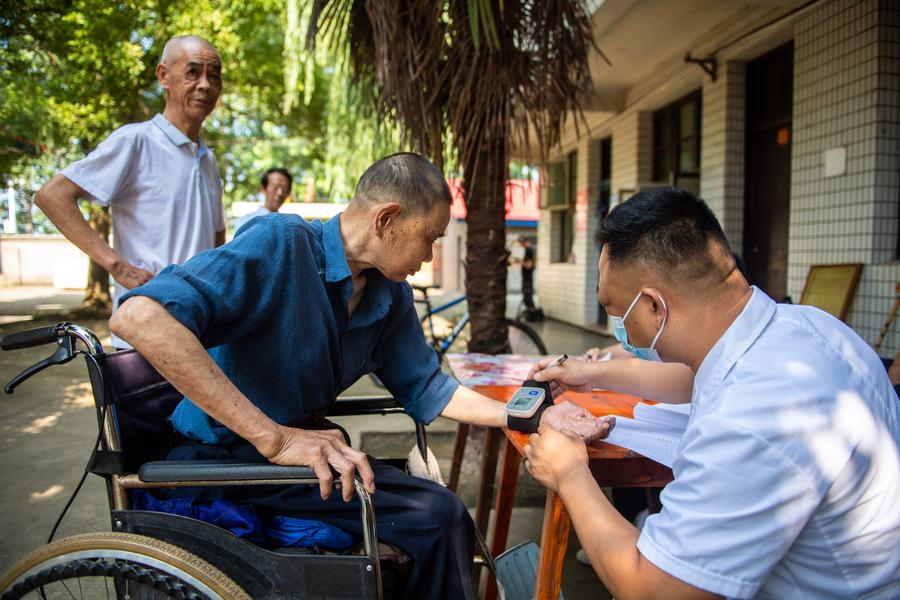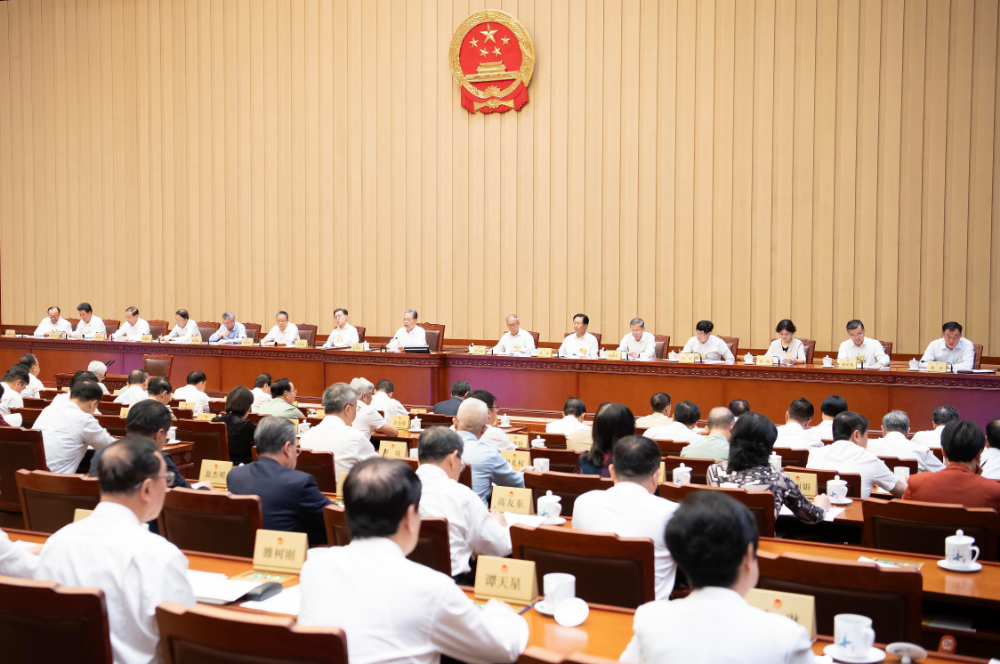
BEIJING - Chinese lawmakers on Friday voted to adopt a decision on gradually raising the statutory retirement age in the country, marking the first adjustment in the arrangement since 1950s.
According to the decision adopted at the 11th session of the Standing Committee of the 14th National People's Congress, the statutory retirement age for men will be gradually raised from 60 to 63 in the course of 15 years starting 2025, while that for women cadres and women blue-collar workers will be raised from 55 to 58 and from 50 to 55, respectively.
Starting 2030, the minimum year of basic pension contributions required to receive monthly benefits will be gradually raised from 15 years to 20 years at the pace of an increase of six months annually.
Meanwhile, people will be allowed to voluntarily retire by no more than three years in advance after reaching the minimum year of pension contributions. But it is not allowed to retire earlier than the previous statutory age.
ALSO READ: Adjustment of retirement ages seen as key for China's aging society
The new policies will also allow individuals to postpone retirement to an even later date if they reach an agreement with employers, but such a delay should be no more than three years.

The decision also specifies measures to refine the old-age insurance incentive mechanism, implement the employment-first strategy, ensure the basic rights and interests of workers who have passed their statutory retirement age, and improve elderly care and childcare services.
The document includes specific provisions on welfare for unemployed old-age workers and on earlier retirement for those in special professions.
The 20th National Congress of the Communist Party of China (CPC) and the third plenary session of the 20th CPC Central Committee made clear arrangements on gradually raising the statutory retirement age in the country.
The plan passed by lawmakers on Friday was formulated on the basis of a comprehensive assessment of the average life expectancy, health conditions, the population structure, the level of education and workforce supply in China.
Legislative process
Zhang Yong, deputy head of the Legislative Affairs Commission of the National People's Congress NPC Standing Committee, explained the legislative process at a press conference held after the top legislature adopted the decision to raise the retirement age.
Zhang said the State Council submitted a bill about the draft decision to the top legislature in early August. It was decided on Aug 27 to include the bill in the legislative agenda of the 11th session of the 14th NPC Standing Committee scheduled for mid-September.
On Sept 10, when the session opened, Minister of Human Resources and Social Security Wang Xiaoping made explanatory remarks on the draft decision to the top legislature.
The lawmakers then held group deliberations. They deemed it necessary for the NPC Standing Committee to adopt such a decision to provide adequate legal basis for major reforms and to ensure the reform on retirement age is carried out in a steady and orderly manner, Zhang said.
The lawmakers said the draft is a feasible one as it has comprehensively considered various factors and fits the basic conditions and realities of the country. They broadly agreed to adopt the draft at the session, Zhang said.
The Constitution and Law Committee of the NPC held a meeting to review the opinions from group deliberations. The committee prepared a revised draft and a review report.
On Sept 11, the Council of Chairpersons of the NPC Standing Committee heard a briefing of the Constitution and Law Committee.

National Defense Education Law revised
Also on Friday, the lawmakers voted to adopt a revised National Defense Education Law, which will take effect on Sept 21, 2024.
The revised law will strengthen national defense education on campus and broaden its scope and outreach in society.
READ MORE: China mulls law revision to promote national defense education
The Law on National Defense Education was passed in 2001 and amended in 2018.


